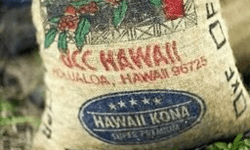Dear Doc:
I understand that under United States Trademark Law, you can’t register marks that are “primarily geographically descriptive” as you can in other countries, but you may register “geographic indications” as certification or collective marks. For example, in France, champagne has to actually come from Champagne and Roquefort has to come from Roquefort. The designation of “Appellation d’origine contrôlée” means that a St. Julien wine must come from that small area of Bordeaux. In Italy, the “DOC” designation means that regional names such as “Tuscan” must originate in Tuscany. However, US courts have ruled that “brie” and “gruyere” are generic for cheeses, even though they once designated cheese from a particular place. Is there any way to make sure that goods genuinely come from a particular place under US law?
Signed,
Mark Me Confused
Dear Mark:
Under United States law, Congress may choose to “preempt” state laws when it passes a federal statute, or to leave state laws in place alongside the federal law. For Copyrights, after the 1976 Act, Congress preempted all state laws that are similar. There is no state copyright, and all rights come under the federal law and are decided in federal court and in the Copyright Office.
The same is not true of trademark law. The United States Patent and Trademark Office explains, “Geographical indications (GIs) are indications that identify a good as originating in the territory of a country, or from a region or locality within that territory, where a given quality, reputation, or other characteristic of the good is essentially attributable to its geographic origin. Examples of GIs from the United States include “Florida” for oranges, “Idaho” for potatoes, “Vidalia” for onions, and “Washington State” for apples.” See our newsletter article on the subject. In addition, the Lanham Act, which encompasses trademark law, does not preempt state common, trademark, and unfair competition laws, and those laws remain viable. In some instances, state laws even provide greater rights than the federal law, and for geographical marks, this may turn out to be especially true where the origin of the product is an issue.
The most recent case in point of this is a Hawaii law that has just gone into effect covering coffee grown or processed in Hawaii. At present, there are approximately 436 federally registered trademarks with the word KONA in them relating to coffee! There were many products being sold as KONA coffee, but that contained 10% or less coffee grown in Kona, Hawaii. Most of the content of such coffee wasn’t even grown in Hawaii at all. Trademark law prohibits the use of misdescriptive marks, but litigating where the line is drawn is difficult. Producers were frustrated and consumers, confused. Chasing every supplier proved to be expensive and in the end, impossible for the small coffee farmers and their association. These farmers turned to the State Legislature for help.

Under the Hawaiian Coffee Labeling Act 211, which was enacted in July 2023, all coffee products carrying a Hawai’i geographical reference must include the disclosure of the location where the coffee was grown in Hawaii, and also indicate the percentage by weight of locally grown coffee and coffee grown elsewhere. This means that “Kona” coffee must be 51% grown in the designated region, and that the origin of the rest of the coffee in the package must be disclosed on the label. By 2027, this law will also apply to other coffee products as well as beans and ground coffee. There are other, lesser known coffee growing areas in Hawaii (Ka’u, Kauai, Molokai’i) to which the law also applies.
Because states must give each others’ laws “full faith and credit,” the Hawaii law should have reach across the entire country. (Whether labeling that violates the law allows suit in Hawaii is an open question, however.)
The Doc thinks that despite the existence of geographical indication registrations for many products (for instance, there are 259 registered marks for NAPA involving wine), other states may soon pass similar laws, so look out for genuine origin and content laws for Kentucky Bourbon, Chincoteague Oysters, and so forth.
Have a mark you’d like to protect? Give the attorneys at LW&H a call. They know this stuff.
Until next month,
The “Doc”
— Lawrence A. Husick, Esq.


